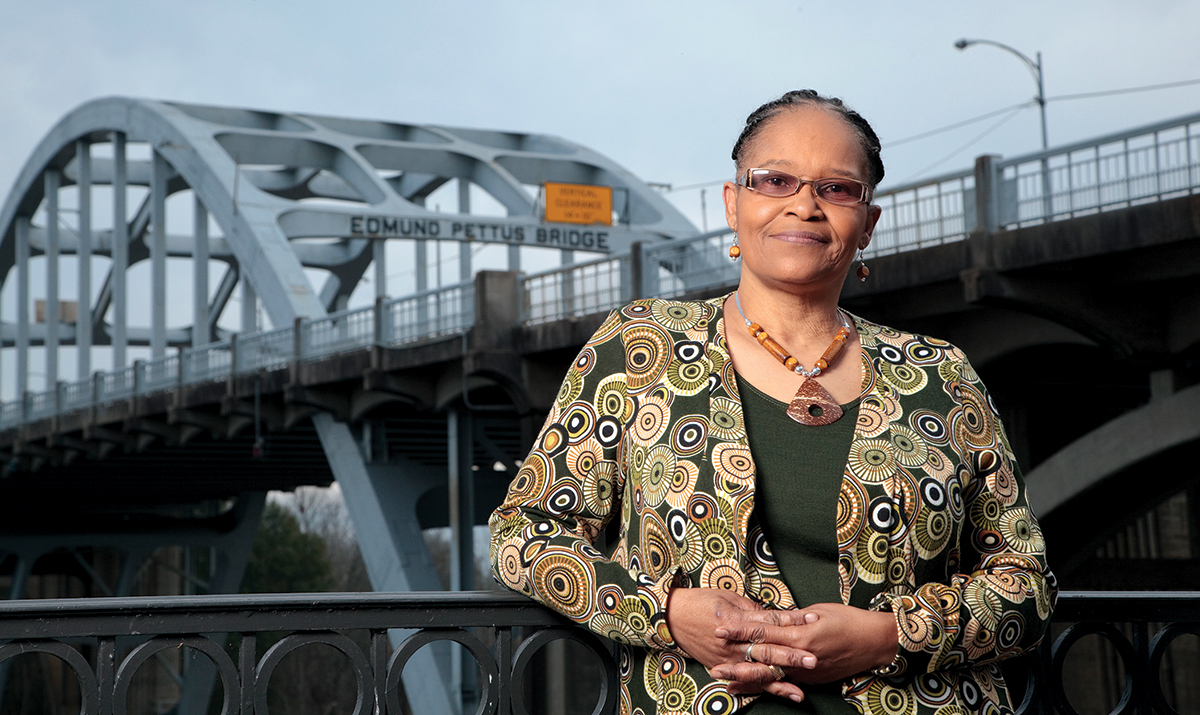Selma to Montgomery marcher pens book for young people
By Miriam Davis

2014 copyright Robin Cooper
Turning 15 on the Road to Freedom
by Lynda Blackmon Lowery
By the time she was 15 years old, Lynda Blackmon Lowery had been jailed, locked in a sweatbox, beaten, gassed, and helped make history.
Lowery tells her story in Turning 15 on the Road to Freedom (Dial Books, $19.99, January 2015), a memoir written for young people, published to coincide with the 50th anniversary celebrations of the Selma-to-Montgomery march.
Lowery was born in Selma in 1950. The oldest of four children, her mother died when she was 7 because, she believes, a white hospital refused to admit her. The young Lynda, her sisters and her brother were raised by their father and grandmother. Her grandmother taught her, “There is nothing more precious walking on this earth than you are. You are a child of God. So hold up your head and believe in yourself.”
And her grandmother first took her to hear the Rev. Martin Luther King Jr. speak in 1963. He told them that they could win the right to vote with what he called “steady, loving confrontation.”
“I remember leaning forward,” says Lowery, “and thinking, ‘I’m going to do that.’”
She began participating in marches and getting routinely rounded up by police, who used cattle prods to take marchers to jail and pack them into overcrowded cells. They sang to keep up their spirits. Lowery admits that when they sang “We Shall Overcome,” and “sang the line ‘We are not afraid,’ I lied a little.” She insists that it wasn’t courage that kept her going. [quote]“It was more determination,” she says. “And when we marched and went to jail, I had everybody with me and everybody else was as scared as I was.”[/quote]
Although she was beaten unconscious on the Edmund Pettus Bridge on “Bloody Sunday,” Lowery persevered. She turned 15 on March 22, 1965, in the middle of the march; she was the youngest of the 300 who took four days to walk the entire distance.
Lowery says that the march to Montgomery changed her. Before, she says, “I didn’t like white folk, and they didn’t like me.” But after Bloody Sunday she was amazed when white people from all over the country come to join the marchers. For her, it was a transformative experience: “They came to our houses and slept on our floors, and ate what we ate, and called my father, ‘Mr. Blackmon.’”
Lowery, who later moved to New York, earned a college degree, and worked for a state mental hospital before returning to Selma, says that she doesn’t regret what happened to her. “That was part of life’s journey,” she says. “I wouldn’t be who I am now without it.”




